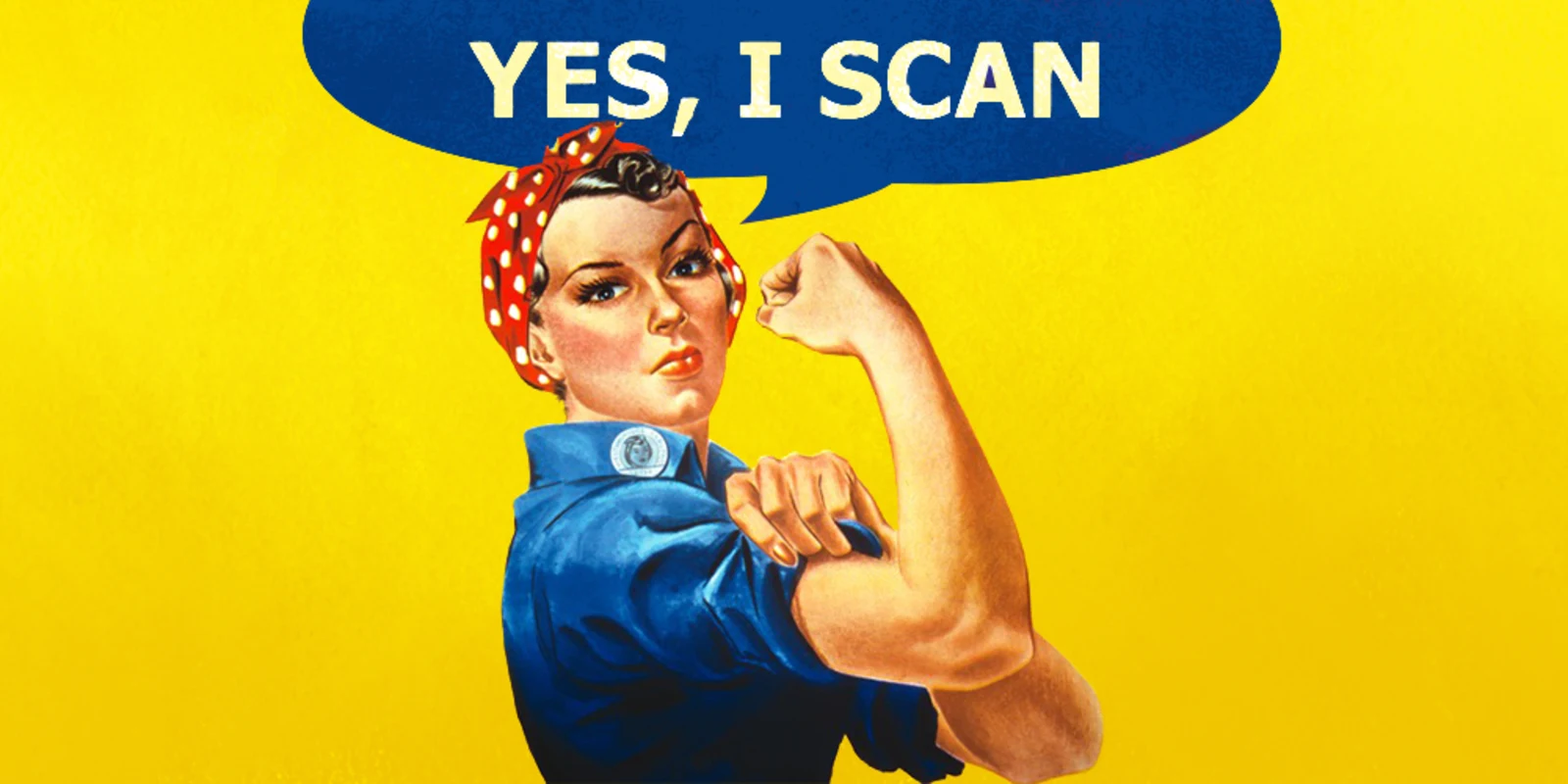
The inaugural Yes, I Scan event was held during the AAPA 2018 Conference. The all-day event featured point of care ultrasound workshops for students, PAs, and PA faculty as well as a student ultrasound competition.
Championed by the holy trinity of physician assistant ultrasound — Patrick Bafuma, John Monti and Frank Norman — the Yes, I Scan event drew nearly 200 attendees while the students from Emory took home the gold in the competition. Janelle Bludorn was the keynote speaker. Below is an adaptation of her message to student participants.
Let me ask you a few questions.
To give you fair warning, these are yes or no questions; the type of closed-ended questions that good PA students are told to avoid during OSCEs.
Do you use some sort of technology in your everyday life? So, I suppose if I named some mundane daily task you’d have an app for it.
Are you a fan of feedback? Receiving feedback is ok, but I’m sure you like to give feedback. It feels good to have your voice heard.
Do you like to have information at your fingertips? Forget about waiting, you value immediacy!
Do you snap?
Do you tweet?
Do you Instagram?
Did you used to Facebook before your mom joined?
And your youthful ears agree that it is Yanny, not Laurel, right?
Are you one of those millennials?
If you answered yes to any of my other questions, you probably are. Even if you didn’t, most of you probably still are. I know that because the average PA student is 26 years-old, right in the middle of the millennial generation.
Don’t worry. I am, too.
My name is Janelle Bludorn. I’ve been an emergency medicine PA and ultrasound enthusiast for eight years. I’ve been a PA educator for two. And I’ve been a proud millennial since 1986. I am going to share with you why point of care ultrasound (POCUS) is the ideal practice companion for PAs of the millennial generation. I will also give you three challenges.
As millennial PAs, we are the future of our profession and POCUS is the future of the practice of medicine. Aside from these mutual destinies, we also share other commonalities that I have alluded to, inducing our strengths in innovative technology, feedback, and immediacy.
Technology & Innovation
As they say, point of care ultrasound is the stethoscope of the future. Clichés aside, POCUS’ technological evolution is astonishing considering that it broke onto the scene just a few decades ago when the machines were the same size and just about as sexy as your grandpa’s Lay-Z-Boy recliner. Now, nearly every clinic and hospital department has a machine for clinician use. Plus, the personal hand-held (or purse-sized) sono has become more ubiquitous, powerful, and economical than we could have ever fathomed. With so much technological innovation in such a short span, there is no telling what advances may be around the corner.
My first challenge to you: Continue to innovate.
Use the technologies that are out there now and don’t be afraid to make them better. Build an app, build a better ultrasound machine. The sky’s the limit and don’t forget that #PAsDoThat.
Feedback
Millennial medical learners (that means you) overwhelmingly desire feedback compared to learners of generations past. Not just an occasional “good job, keep it up” but frequent, consistent, and constructive feedback on performance.
POCUS gives us feedback that we millennials crave. If you think about it, when you’re doing a scan you are enacting and reacting to continuous feedback loops. To understand what I mean, we should probably do a deep dive into the physics of the sonographic waves as they hit the surface of the tissues of vary depths and densities.
Just kidding.
On a much more relatable level, every subtle tilt of the probe or minor adjustment of the gain gives you feedback on the screen and you make an adjustment after adjustment until you develop the muscle memory to move from novice to proficient to expert. It’s continuous feedback.
Here’s challenge number two: Get feedback. Give feedback.
Ask your local ultrasound gurus how your scans look; be open to what they have to say. If you are in the position to, give feedback to others; become a peer educator in your departments, schools, hospitals. Feedback is vital to continual improvement and PAs can play a key role in these feedback loops.
Immediacy
The speed in which we can assess our patients if skilled in POCUS is unparalleled. I mean, within seconds, you can push a button, squeeze some gel, and then literally see inside another human being. As a member of the now generation who grew up with the luxury of being able to “Google it” we thrive on this degree of information immediacy.
Aside from the act of scanning itself, the ultrasound community also models the idea of immediate accessibility. We are some of the pioneers in the #FOAMed movement and if you check out hashtags like #POCUS or #FOAMus you’ll get a front seat to near-real-time sharing of cases, scans, and cutting edge knowledge from the experts themselves.
The time is now to adopt, embrace, and promote POCUS.
So, my last challenge to you is to adopt POCUS into PA education and practice; embrace the ways it can enhance patient care; and promote it to your classmates, colleagues, professors.
Join the conversation on social media; the experts in this field are accessible, engaging, and excited to share with you. You are our future. If you don’t adopt, embrace, and promote, PAs will be left in the past.
In closing, please remember that you are the future. POCUS is the future. You may be at various points in your journey of POCUS mastery. But, it is my hope that in the near future if any PA student is asked they are empowered to proudly say: Yes, I scan.
Janelle Bludorn is an emergency medicine physician assistant and assistant professor of physician assistant studies at the University of North Carolina School of Medicine. She’s been called the unofficial official millennial voice in medical education. Find her on Instagram and Twitter @JanelleRBlu.
The author reports no conflicts of interest.






